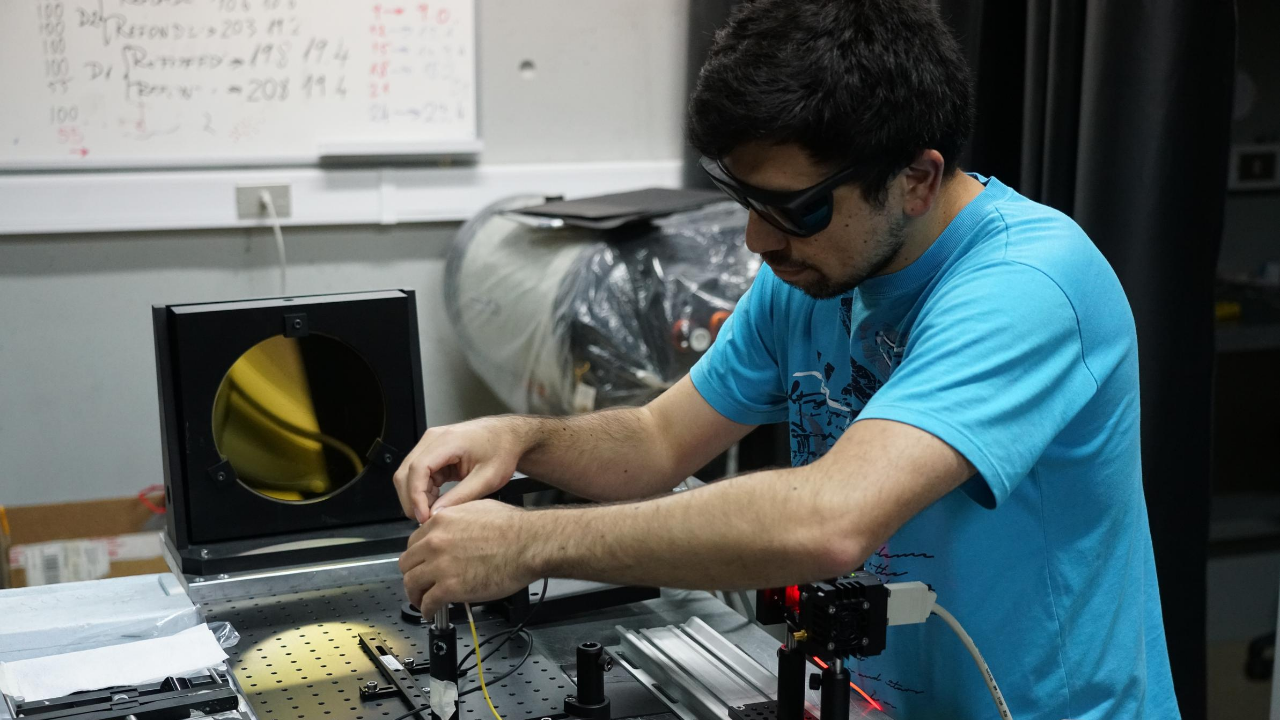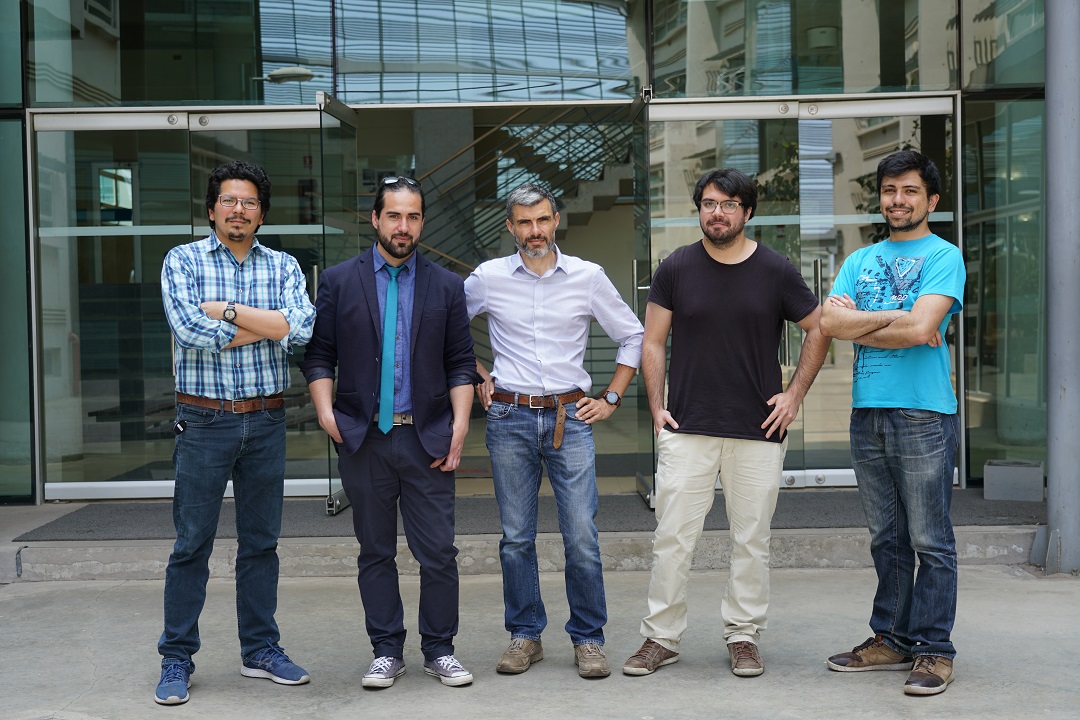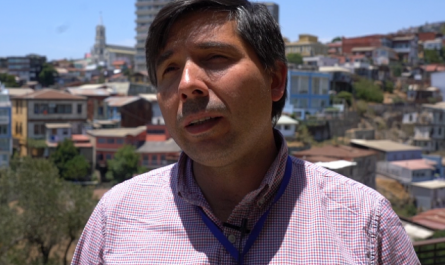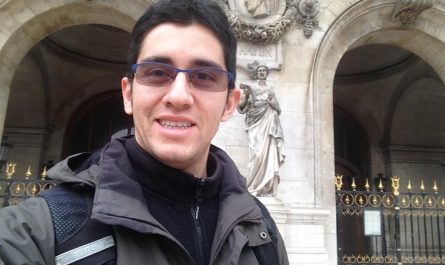Camilo Weinberger, Bachelor of Physics, Master of Science and assistant in the optoelectronics laboratory of the School of Electrical Engineering (SEE) of the Pontificia Universidad Católica de Valparaíso (PUCV), presented a progress of his work as a laboratory assistant at the Image and Applied Optics congress of the Optical Society of America (OSA), conducted online on June 22-26, 2020.
The work in question corresponds to a poster prepared by Weinberger, with the title Training using Deep Learning, where he synthesized all the collaboration made by the physicist with the laboratory team in the past years. Weinberger provided details of his first wavefront sensor, or wavefront sensor that is being carried out in the laboratory. The central idea is through a single image, to detect all the possible deformations that suffers a wave front in the atmosphere. Thanks to the test done in the simulations, a neuronal network has been achieved that describe what is happening in the atmosphere using a single image of a reference star. Something similar to the
functioning of a shack hartmann.
“As a curiosity, I highlight the presentation of Katie Bouman, the girl who participated and was a big responsible for the image reconstruction of the black hole during the past year. It was a topic that was on everyone’s mouth and that somehow crosses disciplines, not only physics or engineering, it was also an unpublished work, where they did not have a frame reference, because no one had ever seen a hole”, commented Weinberger, about the possibility of participating in this instance.
In addition, he appreciated the work of the event coordinators, who, through the use of the Discord platform, they managed to allow the coexistence between the participants to take place expeditiously, positively recreating what is characteristic of these events in person, as indicated by our laboratory assistant. In that platform, the assistants accessed to personalized channels where they could also review the exhibited material, as well as maintain contact with other investigators and participants in the activity.
Finally, Weinberger, indicated to be interest in study the recent Doctorate program in Electrical Engineering of the SEE. In particular, the topic addressed can open up several research topics of interest, which may even lead to a doctoral thesis.





